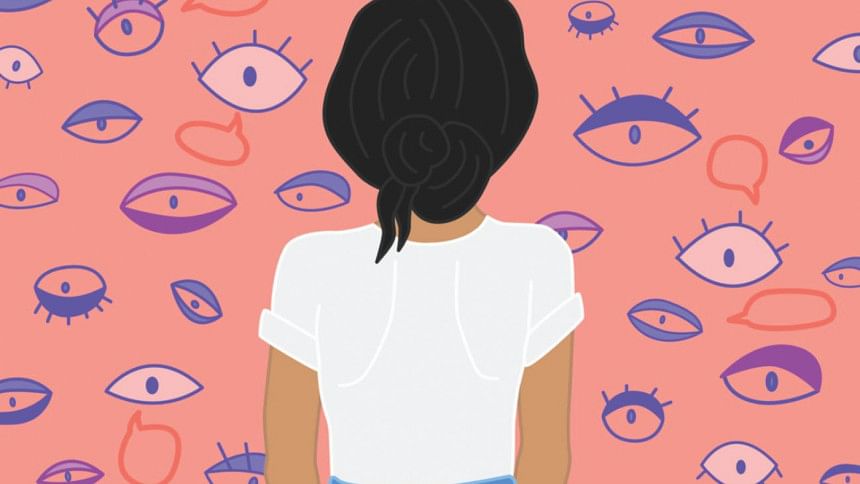Testing the limits of sexual harassment

Earlier this month, The New York Times published an explosive story on allegations of sexual harassmenagainst Hollywood mogul Harvey Weinstein. The report was based on accounts of multiple women accusing him of all forms of sexual misdemeanour ranging from rape to verbal abuse. Weinstein, a prominent and powerful executive in the cinema world, has more than 300 Oscar-winning movies to his credit.
Although his sexual misconduct was an open secret, the gory details of the revelations generated a shock wave, leading to his firing from Miramax and Weinstein Corporation, a company he co-founded. Weinstein's story is not the only one that has been brought to public attention in the recent past. Fox News host Bill O'Reilly, his boss Roger Ailes and TV icon Bill Cosby have also been accused of sexual abuse.
Interestingly, the profile of the male predator fits a pattern—powerful, charismatic and egotistical in the belief that he is invincible. The victims are typically career women, struggling artists, and budding professionals. These women are now in the eye of the media storm that is raging across the corporate industry as well as social circles. While many are praising the victims for their courage in stepping forward, they have also been on the receiving end of severe criticism, mostly from other women.
The critics focus on two issues: a) why didn't the women say "no"; and b) why did most of them wait so long before making their allegations public. Personally, I am outraged at the insensitivity of these criticisms, since there is a tendency to pass the blame onto the victim rather than address the larger issue of a male dominated, misogynistic social and work environment where women are always at a disadvantage. The truth is that not all women are in a position to ward off the advances of men who can retaliate by firing them or even ruining their lives and careers. Also, sexual offenders often resort to physical force or emotional blackmail to coerce women.
Some victims said that they suspected that, after they rejected Weinstein's advances or complained about him, he had them removed from projects or dissuaded people from hiring them. According to sources, Weinstein was frequently heard bragging about planting negative news in media outlets about those who spoke against him.
However, there are women who do say "No" either because they have a choice or because they make the difficult choice of not pursuing their career dreams and goals!
Many ask why women wait for years before making their accusations public. The truth is that the abused women suffer from intense shame and guilt—emotions that predators exploit. A 2015 study found that one in three women have been sexually harassed and that 71 percent did not report it. A woman is placed in a double bind when harassed in the workplace. It affects her sense of self, but she needs the job, and until a better opportunity comes along, she has no choice but to endure. Besides, a prospective employer is likely to steer away from an applicant claiming she quit her previous job because she was sexually harassed.
Unfortunately, there is also a cultural complicity at business places where other employees are more or less aware of sexual predators, but they either abet the crime or look the other way. Hence, a woman often feels isolated and powerless. Even when she complains to an HR person, she is asked to produce evidence. And evidence is usually "his" word against "hers" – with a high probability that the man is believed to be innocent unless proven guilty.
It would not be fair if I did not admit that in some cases, men are accused of exploitative behaviour when none has occurred. As more women enter the workforce, interpersonal interactions between genders have become a landmine-laden experience in which good intentions may be misconstrued.
Many women are frustrated and discouraged by the fact that we live in a world where one of the most powerful nations elected a president who was heard on tape bragging about how he "groped" women who actually let them do it because he is a "star"! Let us, however, draw courage from the fact that recent disclosures about sexual misdemeanour by public figures have resulted in not only social opprobrium but also a removal from their positions of influence. Women have thus been somewhat emboldened to share their traumatic experiences with others. But the recent revelations may be the tip of the iceberg, for Weinstein is just one producer and O'Reilly is just one TV host. We cannot help but wonder how many more predators are still roaming free and how many more women are being violated each day, with impunity.
Will things ever change? Not unless we change the culture where women are debased, humiliated and commoditised as objects of pleasure not just in the business world, but also in their homes and in society.
Milia Ali is a Rabindra Sangeet exponent and a former employee of the World Bank.





Comments